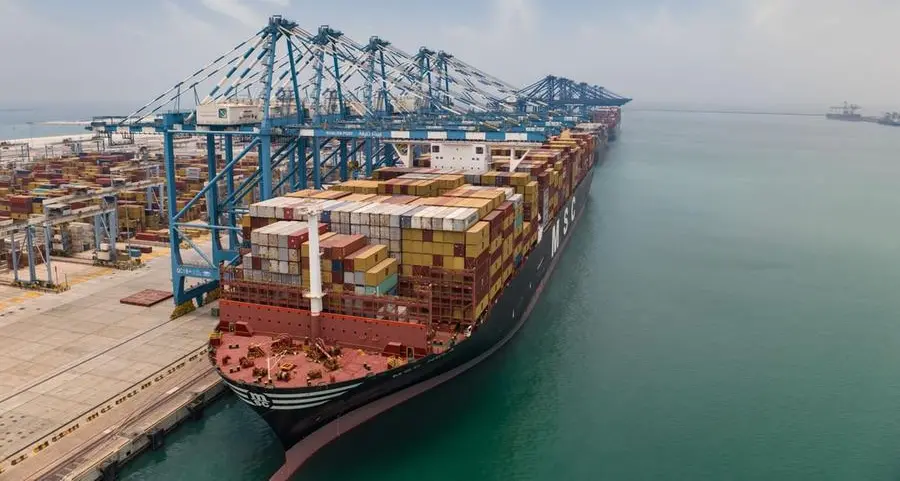As one of the most exciting offshore plays on the African continent, Senegal has emerged in recent years with giant discoveries in both oil and gas that are set to come online from 2023, completely transforming the country’s economic landscape. However, that is just part of the story, as the country boasts a multitude of opportunities in renewables, particularly solar and wind power, which are already impacting the local market. African Energy Week 2022 (www.AECWeek.com) in Cape Town explored these opportunities at the Invest in Senegal Country Spotlight on Thursday, opened with a keynote address from H.E. Sophie Gladima, Minister of Petroleum and Energies of Senegal.
“We will start in 2023 with gas production. There will also be exportation – some of it will be used for agriculture, pharmaceutical products, fertilizer and so on. This is part of the Emerging Senegal Plan,” said H.E. Gladimal. “Studies are also underway for the rapid construction of a gas pipeline from Nigeria and Morocco through Senegal, which will allow us to beneficiate the value on the continent. Apart from these gas and oil projects, we have quality energy and stable energy at a reasonable price. That will allow us to create many industries and jobs so we can employ our youth.”
Panelists included Mamadou Fall Kane, Deputy Permanent Secretary, Cos-Petrogas; Aguibou BA, Executive Director, INPG; Joseph Medou, General Manager, Senegal's Gas Network (RGS); and Rogers Beall, Founder&CEO, Fortesa. The panel was moderated by Rita Madeira, Africa Program Officer for the International Energy Agency.
Following the discovery of more than one billion barrels of oil and 120 trillion cubic feet of natural gas offshore Senegal and Mauritania since 2014, a number of major projects underway in Senegal are set to transform the West African country’s economy over the course of the next five years and put it on the map as a major new hydrocarbon producing nation. These include the Sangomar Field Development – Senegal’s first oil project on track for first oil in 2023 – and the Greater Tortue Ahmeyim (GTA) gas project on the maritime border of Mauritania and Senegal.
“Senegal has a proven petroleum system with multiple source rocks. We have two major deepwater discoveries underway. Together with Petrosen, we have put together the geological story,” said Rogers Beall, Founder&CEO, Fortesa. “We believe that onshore gas can be developed. We have a great platform to build from and are in a position to drill and now provide for the 150 million cubic feet of day that is our installed market onshore in Senegal, waiting for gas. Even our coal plants are dual-engine and could be using gas. We need your investment.”
From the outset, Senegal has made it clear that its vast hydrocarbon resources will be used to fast-track socioeconomic development through both the export of gas to electricity-deficient countries in the region, as well as the creation of a domestic electricity market, with a view to reaching universal energy access by 2025. For African countries endowed with both hydrocarbon and renewable resources, Senegal’s diversified energy mix can serve as a model compared to other, single resource-centric economies.
“Senegal has decided to maximize its electricity production from natural gas,” continued H.E. Minister Gladima. “This production of electricity from gas will allow us to reduce costs. Natural gas has long-played a role in reducing carbon emissions, as well as costs less than coal and oil. This will help to reduce greenhouse gas effects, so that there will be cleaner technologies like hydrogen and biogas.”
“With our gas fields, we can decrease the cost of electricity by as much as 40%,” echoed Mamadou Fall Kane, Deputy Permanent Secretary, Cos-Petrogas. “There is room for investment in the electricity sector. In addition, we aim to transform metal and mineral resources like iron ore from Senegal and the region. We want to make Senegal a transformational hub for mineral resources in West Africa. If you look at national demand for electricity, it is only 1 GW.”
“Our priority is to use natural gas for export. With the GTA project, for example, we will liquefy the gas and export it to the market,” said Joseph Medou, General Manager, Senegal's Gas Network (RGS). “But another priority is gas-to-power. Our goal is to provide power to all of Senegal, as well as to the Gambia and Guinea-Bissau. We have also just signed a Memorandum of Understanding with Morocco, Nigeria and Mauritania related to the West African gas pipeline, which will link these countries. It’s an opportunity for us to export gas, but also to get gas in case we have challenges with our fields.”
Meanwhile, Senegal has implemented robust legal requirements for oil companies to make use of local personnel and suppliers, with a view to ensuring that Senegal’s oil and gas revenues are shared in a transparent and equitable manner. In addition to bringing first gas developments online from 2023 onward, Senegal is seeking to develop new industries linked to hydrocarbons such as petrochemicals, pharmaceuticals and fertilizers, along with a broad utilization of gas-to-power projects that can lower the costs of production.
“The ambition and the vision is here,” noted Aguibou BA, Executive Director, INPG. “The INPG comes in to develop the skills needed to grow and develop the sector. This followed a needs assessment done in 2017, in association with the majors operating in Senegal, to understand what was needed to fuel growth of this industry. We realized that we needed specialized engineers and technicians, but also to support the public and private sector in terms of capacity building and creating SMEs.”
Distributed by APO Group on behalf of African Energy Week (AEW).


















